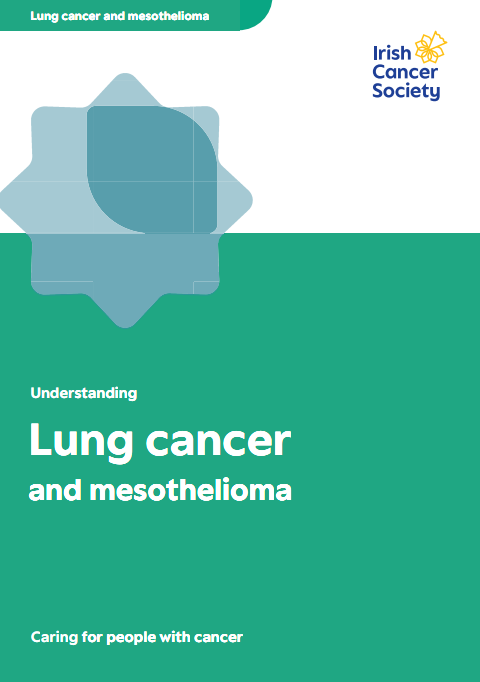Mesothelioma
Mesothelioma is a rare cancer – about 50* people are diagnosed with it each year in Ireland.
The primary cause is exposure to asbestos, often 20-50 years earlier.
Signs and symptoms
Learn about the signs and symptoms of mesothelioma cancer. You are more likely to survive cancer if you find it at an earlier stage.
Treatments
There are a number of different treatments available for mesothelioma cancer. Your medical team will explain the best treatment options for you.
What is mesothelioma?
Mesothelioma is cancer of the mesothelium. The mesothelium is a thin layer of tissue that lines many cavities in the body. These include the pleura (thoracic cavity), peritoneum (abdominal cavity) and pericardium (heart sac).
Pleural mesothelioma, which affects the lining of your lungs, is the most common type of mesothelioma.
The layers that line your lungs are called the pleura. They are separated by a small amount of fluid, which helps them to slide over each other easily.

Mesothelioma causes the pleura to thicken and become hard. This makes it more difficult for your lungs to expand and contract as normal, making it more difficult for you to breathe.
Sometimes excess fluid called a pleural effusion builds up between layers of the pleura. The build-up of fluid also makes it harder to breathe and you will feel breathless.
What causes mesothelioma?
Being exposed to asbestos is the main cause of mesothelioma, but more research is being done into other causes.
Asbestos is a substance used mainly in insulation. It’s now illegal to use asbestos, but there may still be asbestos in older buildings. Asbestos shouldn’t do any harm unless it releases its fibres, which can happen if it’s broken or damaged.
Asbestos fibres can’t be broken down if they’re breathed in. They stay in your lungs and can cause mesothelioma, usually many years (10 to 60 years) after you’re exposed to the asbestos.
Not everyone who has been exposed to asbestos will develop mesothelioma.
Can I be screened for mesothelioma?
Testing for mesothelioma when you have no symptoms is called screening. There is no national screening programme for mesothelioma. If you are worried about your risk of mesothelioma, talk to your family doctor.
Medical content updated from our 'Understanding lung cancer and mesothelioma' booklet (2024), reviewed by Mr Gerald Fitzmaurice, Consultant Cardiothoracic Surgeon; Cr Claudia Carvajal Sanjines, Consultant Radiation Oncologist; Christopher Cronin, Specialist Registrar Medical Oncology; Clara Cremin, Clinical Specialist Radiation Therapist; Aine Ward, Cardiothoracic ANP; Anne Quinlan, Daffodil Centre Nurse.
Talk to a Cancer Nurse

Support Line
Our Daffodil Centres

*The Irish Cancer Society uses the most up-to-date cancer statistics from the National Cancer Registry Ireland, available on www.ncri.ie

